25 books to read in the second half of 2019
Zadie Smith, Ta-Nehisi Coates, and Patti Smith are among the authors with new releases in the coming months

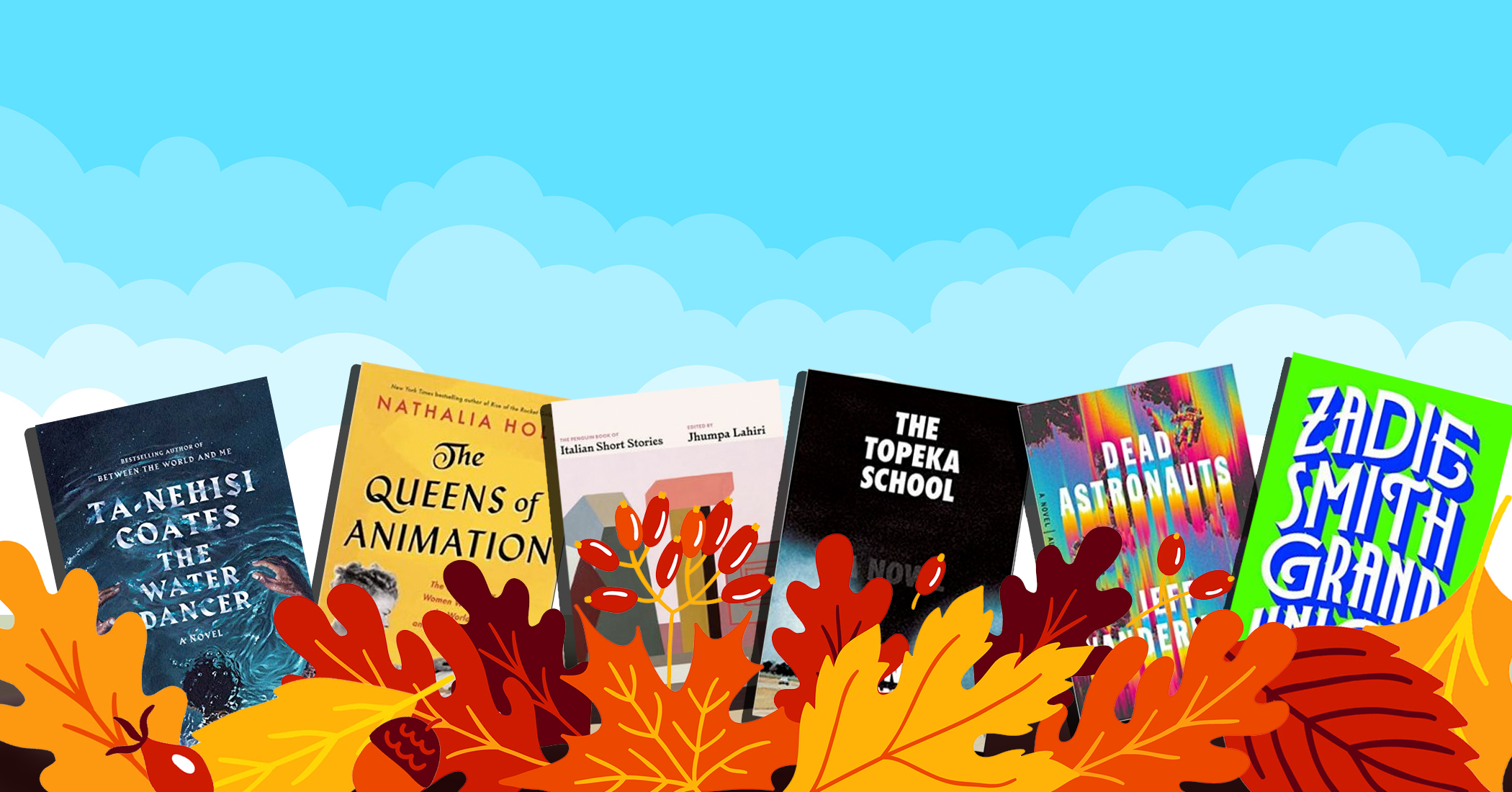
A free daily email with the biggest news stories of the day – and the best features from TheWeek.com
You are now subscribed
Your newsletter sign-up was successful
Looking for something to read?
You're going to have to be more specific. Do you want a biography about one of the most ancient and irresistible human stories ever composed? A novel as bluesy and sad as a Dolly Parton song? A memoir that will wrench you apart with its beautiful language and images? Good news: You don't have to pick — the second half of 2019 is bursting with stories asking, no demanding, to be read.
Get ready to smash that preorder button; here are the 25 books I'm going to have stacked hazardously on my bedside table this fall.
The Week
Escape your echo chamber. Get the facts behind the news, plus analysis from multiple perspectives.

Sign up for The Week's Free Newsletters
From our morning news briefing to a weekly Good News Newsletter, get the best of The Week delivered directly to your inbox.
From our morning news briefing to a weekly Good News Newsletter, get the best of The Week delivered directly to your inbox.
1. The Penguin Book of Italian Short Stories, edited by Jhumpa Lahiri (Sept. 10)
One of my most treasured volumes is The Penguin Book of Japanese Short Stories, a bright pink hunk of a book that I dragged all across Honshu with me when visiting this past spring. To my delight, Penguin is continuing the series with its next stop being Bel Paese. Pulitzer Prize-winning novelist Jhumpa Lahiri is serving as the editor for the Italian collection, which features works by titans like Italo Calvino alongside names you might not already be familiar with — of the 40 stories, more than half are being published in English for the first time. In total, the book spans over 100 years of Italian literary history, and will be the perfect companion whenever I get around to that trip to Rome.
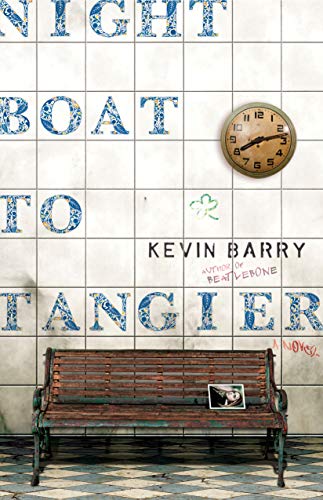
2. Night Boat to Tangier, by Kevin Barry (Sept. 17)
Irish literature is having a moment — although really, isn't Irish literature always having a moment? From recent works like Anna Burns' Man Booker Prize-winning Northern Irish novel The Milkman to Sally Rooney's immensely popular Sligo-set Normal People, Ireland is making good on its long (and more often than not, bleak) tradition of producing great literature on both sides of its border. This fall, Limerick-born author Kevin Barry is rejoining the herd with his first novel since 2015's Beatlebone; Night Boat To Tangier finds two aging Irish gangsters searching for a missing daughter among the crowds arriving in Spain from North Africa. Barry reportedly even wrote the novel's first draft in the ferry terminal in Algeciras, Spain, where his protagonists pass the time. Barry has made no secret about gunning for the Nobel Prize in Literature, and Night Boat to Tangier is further evidence that he really means it.
A free daily email with the biggest news stories of the day – and the best features from TheWeek.com
3. Year of the Monkey, by Patti Smith (Sept. 24)
Patti Smith is one of those infuriating people who seems gifted at everything she does. In addition to being a 2007 inductee in the Rock and Roll Hall of Fame, she won the National Book Award in 2010 for her memoir Just Kids. Her latest work of nonfiction, Year of the Monkey, is titled in reference to Smith's 70th birthday year when she embarked on a solo journey across the country. From meditations on poetry, politics, art, and dreams, to her own lyrical way of interacting with the world, Year of the Monkey confirms Smith cannot be boxed in by either genre or medium. The book also includes Smith's Polaroids from her travels — yes, somehow she is a talented photographer on top of everything else.
4. Gilgamesh: The Life of a Poem, by Michael Schmidt (Sept. 24)
Gilgamesh is often described as being the most ancient surviving work of epic literature. Begun as long ago as two millennia B.C., and finished around 700 B.C., the story was discovered written on 12 clay tablets in what is today modern Iraq and details the legacy of the great King Gilgamesh and his clashes with the Mesopotamian gods. In this book by literary historian Michael Schmidt, the Epic of Gilgamesh is examined through its many different translations, and its enduring allure and inspiration to modern poets is put under the microscope. "Because of discoveries and re-interpretations of older tablets, the words won't settle," Schmidt writes of Gilgamesh in his introduction. "They change before our eyes; the poem remains provisional, shifting like dunes." For anyone interested in language, history, or the power of a great story, this biography of a poem assures endless discoveries.
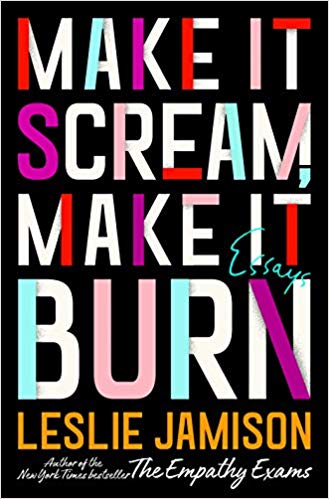
5. Make It Scream, Make It Burn: Essays, by Leslie Jamison (Sept. 24)
Leslie Jamison is one of my favorite working essayists, having won me over with her 2014 collection The Empathy Exams. Following up her 2018 alcoholism memoir The Recovering, Make It Scream, Make It Burn marks the author's return to the short form via explorations of topics as varied as lonely blue whales and the Sri Lankan Civil War. Divided into three sections — Longing, Looking, and Dwelling — Jamison dances between the personal, the critical, and the observational, showing her deftness when it comes to each form. The title essay in particular looks at author James Agee's 1941 work Let Us Now Praise Famous Men, and how "the documentary 'I' rarely documents without doing some damage."
6. The Dutch House, by Ann Patchett (Sept. 24)
Ann Patchett has quietly been publishing some of the best works of American literature for years, from Bel Canto to her most recent, Commonwealth, in 2016. I am eagerly awaiting her newest work, a decades-spanning novel about a family estate near Philadelphia that is lost to siblings Danny and Maeve after their father marries their selfish step-mother, who dispossesses them of their inheritance. Described by the publisher as "a dark fairy tale," this novel about the bond between siblings is earning rave early reviews. It also has at least one celebrity fan already — actor Tom Hanks, who is narrating the audiobook.
7. The Water Dancer, by Ta-Nehisi Coates (Sept. 24)
MacArthur Fellow and former Atlantic writer Ta-Nehisi Coates makes his fiction debut this year with The Water Dancer. Set on a plantation in Virginia, Hiram Walker is the son of the white owner of the estate and one of the slaves, Rose, who has been sold away — an act that simultaneously erases her from Hiram's otherwise impeccable memory. When Hiram nearly drowns in an accident at the age of 19, he has a vision of his mother as a water dancer, and is inspired to escape from the only life he's ever known. The striking cover of the novel was hand-chosen by Coates, who worked with designer Calida Garcia Rawles to combine "the 'meditative' quality of water to reckon with black trauma," The New York Times reports.
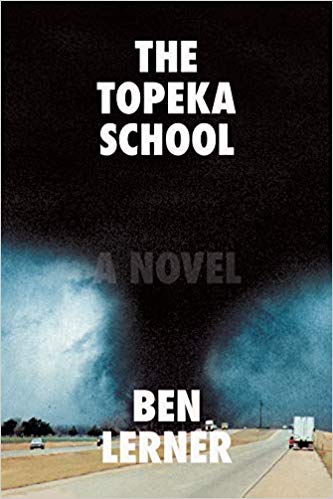
8. The Topeka School, by Ben Lerner (Oct. 1)
Ben Lerner's novel 10:04 is one of my favorite books, so you can imagine how agonizing the past five years been awaiting its follow-up. At last, though, we are getting The Topeka School, which has received glowing blurbs from authors like Sally Rooney, Maggie Nelson, and Hilton Als. Adam Gordon is a senior in the class of 1997 at Topeka High School, and a popular member of the debate team (he also happens to be the narrator of Lerner's Leaving the Atocha Station, although one does not need to read that book before this one). Adam's parents are both therapists, and are locked in a tense marriage; their perspectives, and Adam's, are used to tell this story. "In a way, this is a book about me imagining my childhood from my parents' perspective," said Lerner, who is one of the leading voices of the modern autofiction movement.
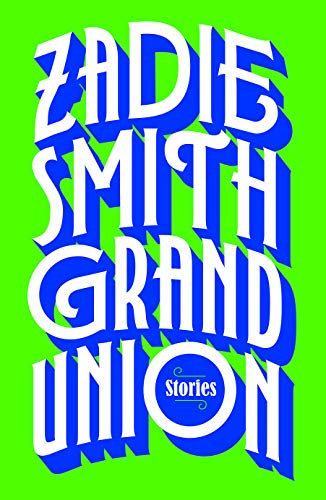
9. Grand Union: Stories, by Zadie Smith (Oct. 8)
You're going to be seeing Zadie Smith's Grand Union everywhere this fall, and not just because of its bright neon-green cover. With 11 wholly new stories, in addition to eight that have been previously published elsewhere, this is, surprisingly, the regular New Yorker contributor's first collection of short fiction. While the stories in Grand Union are varied in topic, shape, and scope (Publishers Weekly writes that "readers of all tastes will find something memorable"), you can get a sense of Smith's shorter style by reading "Lazy River," which is included in the collection, here.
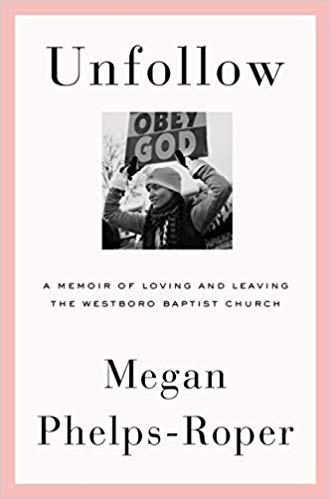
10. Unfollow: A Memoir of Loving and Leaving the Westboro Baptist Church, by Megan Phelps-Roper
Some of the biggest memoirs of the past several years have been about leaving toxic religious communities: 2018's Educated looks at what it took for its author to leave a survivalist Mormon community in Idaho, while Leaving the Witness, about a third-generation Jehovah's Witness exiting the church, received rave reviews after it came out this summer. This fall, Unfollowed tells the story of Megan Phelps-Roper, whose grandfather founded the notoriously homophobic Westboro Baptist Church in Topeka, Kansas, in 1955. Starting at the age of five, Phelps-Roper would join her family picketing funerals for military service members; when she got older, Phelps-Roper took over the church's Twitter account, sparring with critics who slammed Westboro Baptist for being a hate group. Yet it was on Twitter, too, where Phelps-Roper began to face doubt about the things her family insisted were givens: "How could we claim to love our neighbor while at the same time praying for God to destroy them?" is how she puts it in her popular TED talk about leaving the community. The story is so good, it's already being made into a movie produced by Reese Witherspoon.
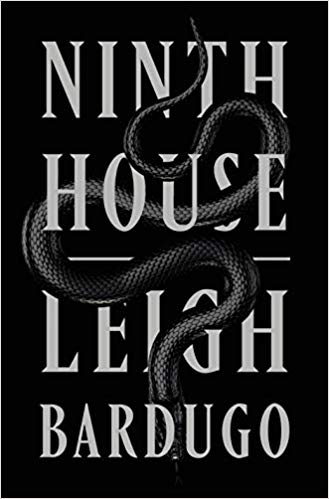
11. Ninth House, by Leigh Bardugo (Oct. 8)
Leigh Bardugo is the author of several wildly popular YA novels, including the Six of Crows duology and the Shadow and Bone trilogy. Her newest novel is her first to be marketed to adults, and returns Bardugo to the world of her alma mater, Yale. The story concerns a girl named Galaxy "Alex" Stern, who is living a deadbeat life when she becomes the sole survivor of a mysterious mass murder. She is subsequently offered the chance to go to Yale, with the catch being that she must monitor the college's secret societies. Lev Grossman, who wrote The Magicians trilogy, called Ninth House "one of the best fantasy novels I've read in years" — so I'm all in.
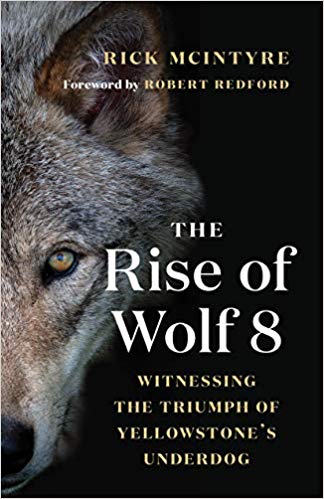
12. The Rise of Wolf 8: Witnessing the Triumph of Yellowstone's Underdog, by Rick McIntyre (Oct. 15)
The Rise of Wolf 8 tells the story of the Yellowstone National Park wolf recovery efforts by zeroing in on one small runt who beats the odds and ascends through the ranks of his pack. Park ranger, conservationist, and author Rick McIntyre has spent his entire life following and studying wolves, and logged more than 100,000 sightings in total. He uses Wolf 8 — one of the first wolves to be reintroduced to the park — to launch this true-story trilogy about North America's most magnificent and misunderstood beasts. Director Robert Redford, a longtime Yellowstone activist, wrote the introduction.
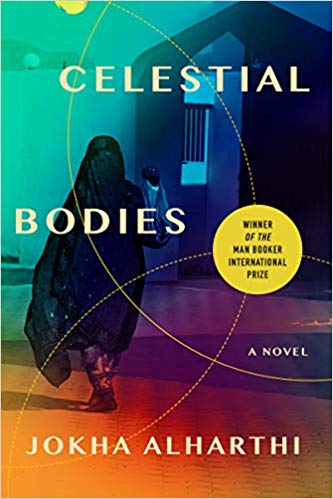
13. Celestial Bodies, by Jokha Alharthi and translated by Marilyn Booth (Oct. 15)
Our friends across the ocean have already had the chance to read Celestial Bodies, which was first published in Arabic in 2010 and won the prestigious Man Booker International Prize in the United Kingdom in May. The official U.S. release, via publisher Catapult, will introduce American readers to Jokha Alharthi, the first female Omani author to ever be translated into English. The novel tells the story of three sisters who follow different paths of love, and takes multiple viewpoints in its complicated, woven structure (The Guardian review observes that "frequent reference to the family tree that opens the book is needed, but cannot unravel all the bewildering inter-relationships" — Catapult confirms the tree is in their edition as well). But don't be daunted; the chairwoman of the Man Booker International Prize says it is a novel "to win over the head and the heart in equal measure."
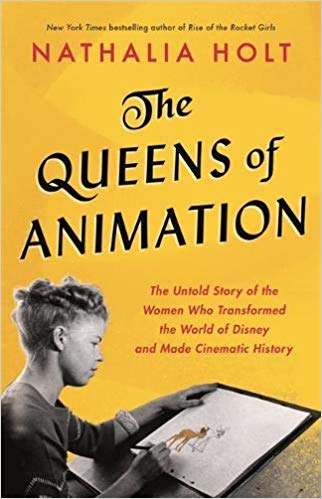
14. The Queens of Animation: The Untold Story of the Women Who Transformed the World of Disney and Made Cinematic History, by Nathalia Holt (Oct. 22)
Think of this book as if Hidden Figures were about Walt Disney Studios instead of NASA. The Queens of Animation pulls back the curtain on a handful of influential, and largely under-recognized, women writers and animators who helped shape the early aesthetic of Disney during a time when the industry was largely a boy's club. From Sylvia Moberly-Holland, who contributed on Fantasia and Bambi, to Mary Blair, who worked on Cinderella, author Nathalia Holt goes from Snow White up to Frozen in this essential read ahead of the launch of Disney+ this fall.
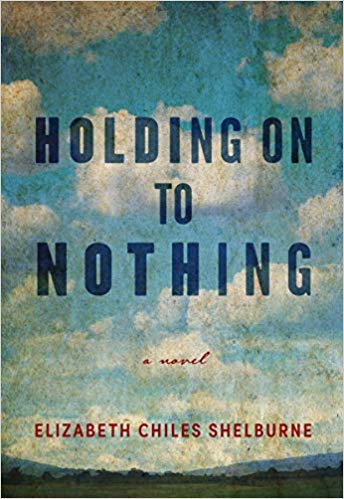
15. Holding On To Nothing, by Elizabeth Chiles Shelburne (Oct. 22)
The debut novel from East Tennessee native Elizabeth Chiles Shelburne is a modern-day ballad about Appalachia (did you recognize the title from the Dolly Parton song of the same name?). Young Lucy Kilgore wants nothing more than to leave the small mountain town where she was born, but is irrevocably tied down after she winds up pregnant with the child of a local white trash musician named Jeptha Taylor. With the whole world seemingly conspiring against them, Lucy and Jeptha try to make their little family work even when there is nothing left to hold on to. Fates and Furies author Lauren Groff called Holding On To Nothing "all whiskey, bluegrass, Dolly Parton, tobacco fields, and women who know better but still fall for the lowdown men whom they know will disappoint them," which sounds like my kind of winning recipe.
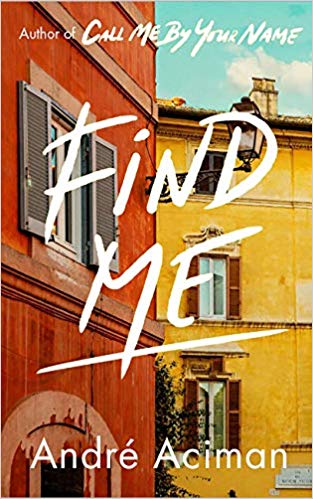
16. Find Me, by André Aciman (Oct. 29)
André Aciman's Italian love story Call Me by Your Name found a whole new audience of fans after the tale of Elio and Oliver was adapted for screen by Luca Guadagnino in 2017. Now, more than a decade after publication of the 2007 novel, Aciman returns with the sequel, Find Me. Elio, now an adult, is a classical pianist living in Paris, and engaged in an affair; meanwhile Oliver, who's started a family in New England, considers returning to the continent where he fell in love with Elio all those years before. "I just wanted to be back with them again because I love them," Aciman has said of his decision to revisit Oliver and Elio's story. "I love their love." Same.
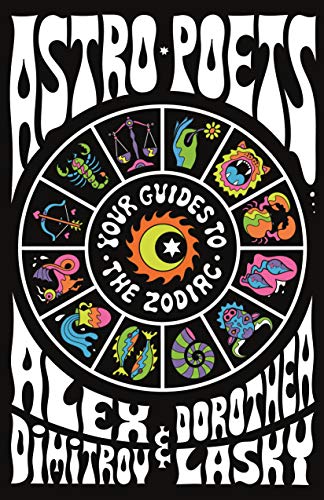
17. Astro Poets: Your Guides to the Zodiac, by Alex Dimitrov and Dorothea Lasky (Oct. 29)
"Time is a myth
& Earth isn't central
or special in the Universe
but falling in love with a Scorpio
is hot af."
That's the sort of wisdom you can expect from extremely online poets Dorothea Lasky and Alex Dimitrov, who run the joint account Astro Poets. Beloved for their untraditional, and sometimes downright unknowable, weekly horoscopes, as well as for their meme-centric, eerily accurate encapsulations of the signs (as "types of alcohol"; as "u up?" texts), Astro Poets' forthcoming guide to the zodiac will certainly not be your hippie mom's Sun Signs. "Being poets, we have skills in invoking the invisible," Lasky explained to The New York Times. "And I think one of the big misconceptions about poetry is that poems have to mean something. A poem has an infinite set of meanings. Anybody's star chart is like that too."
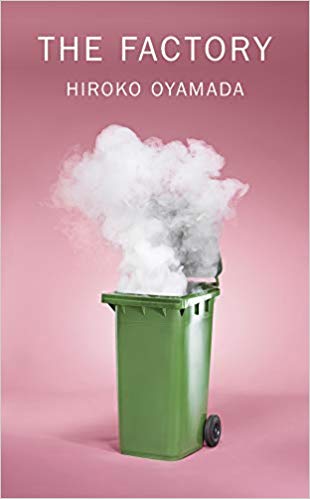
18. The Factory, by Hiroko Oyamada and translated by David Boyd (Oct. 29)
This wisp of a book marks the formal English-language introduction of Japan's Hiroko Oyamada; previously, the only accessible translation of this author's strange work was her short story, "Spider Lilies," published in Granta's 2014 anthology of new Japanese literature. But anyone who read that story at the time has likely not forgotten Oyamada's way of gently unsettling the reader — a talent she likewise exercises in The Factory. Told from the point of view of three different employees who work strange and unexplainable jobs at the massive factory of the title, Oyamada's story invites comparisons to Kafka and is reportedly based on her time working as a temp for an automaker's subsidiary. Thankfully, there is already more Oyamada swiftly on the way; her subsequent novel, The Hole, will also be published by New Directions and comes out next year.
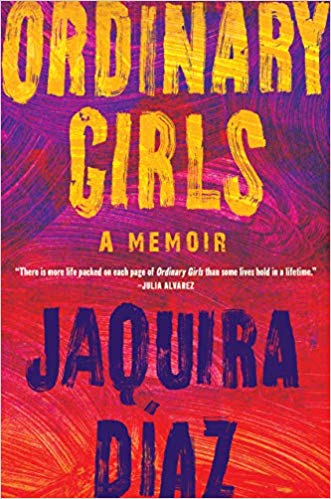
19. Ordinary Girls: A Memoir, by Jaquira Díaz (Oct. 29)
Every so often you discover a voice that just floors you — or rather, feels like it can bulldoze something in your very soul. This fall, that voice belongs to Jaquira Díaz, who writes of her turbulent childhood growing up poor in Puerto Rico and relocating to Miami in pursuit of a better life. With a father who was a drug dealer and a mother who's increasingly destabilized by her schizophrenia, Díaz recalls her marriage at 17 and search for stability in a community that seemingly offered none. "Some girls took sleeping pills and then called 911, or slit their wrists the wrong way and waited to be found in the bathtub. But we didn't want to be like those ordinary girls ... We wanted something we could never come back from," Díaz explains in a powerful excerpt published in the Kenyon Review.
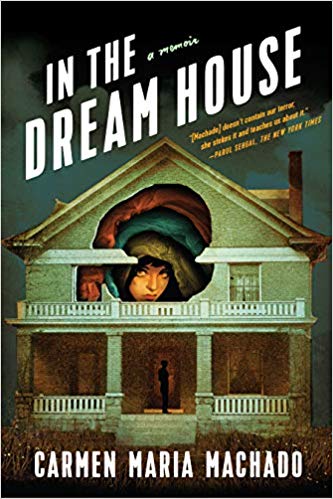
20. In the Dream House: A Memoir, by Carmen Maria Machado (Nov. 5)
Carmen Maria Machado's rise in the literary world has been nothing short of meteoric. Despite having only published one collection of short stories to date (Her Body and Other Parties, a finalist for the National Book Award), Machado has more than earned her spot on the shelf beside the likes of other brilliantly weird authors such as Kelly Link, Shirley Jackson, and Karen Russell. She's also intense; her recent interview with Electric Lit was one of the strangest, most uncomfortable things I've ever read (it's titled "A Perfectly Normal Interview with Carmen Maria Machado Where Everything Is Fine"). That same intense frankness is part of why I can't wait for her memoir, In the Dream House, which explores her experience in an abusive relationship with another woman. Speaking with Guernica, Machado said she was "afraid of this memoir ... because so little has been written about abuse in same-sex relationships, I couldn't really read and immerse myself in what already exists — there isn't much at all. So I had to try my hardest to remember my experience and what felt terrifying and contradictory about it."
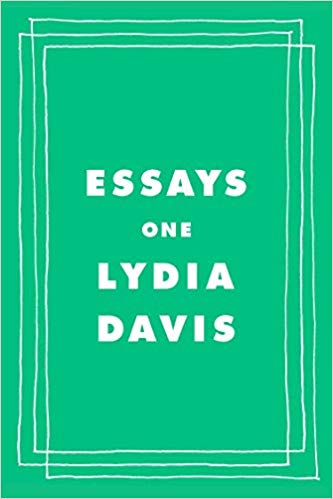
21. Essays One, by Lydia Davis (Nov. 12)
Lydia Davis has been called the "writer's writer's writer" due to her hyper-specific, hyper-short, hyper-strange stories, but as Bookworm host Michael Silverblatt told The New Yorker in 2014, "literary people know that at the sentence level and the word level she's the best there is." Now Davis is putting her more than 30 years of experience into a selection of essays on the craft of reading and writing; the first of the two-volume set comes out this fall. Don't expect run-of-the-mill advice like "show don't tell" here, though; Davis has made a career out of breaking the established rules, explaining "that's the interesting thing about writing. You can start late, you can be ignorant of things, and yet, if you work hard and pay attention you can do a good job of it." Get a sense of Davis' teachings in her Paris Review essay about revising one sentence.
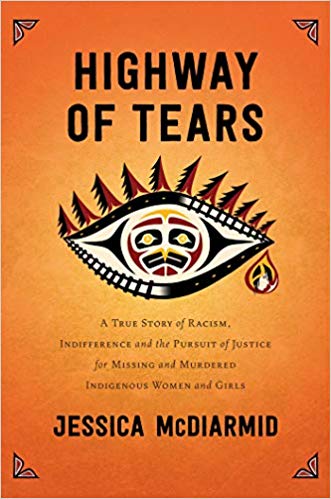
22. Highway of Tears: A True Story of Racism, Indifference, and the Pursuit of Justice for Missing and Murdered Indigenous Women and Girls, by Jessica McDiarmid (Nov. 12)
One of the most horrifyingly neglected social justice issues of our time is the crisis of missing and murdered indigenous women and girls across the United States and Canada. In this incredible work of investigative journalism, Jessica McDiarmid looks specifically at one of the most notorious regions of violence, a more than 400-mile stretch of road in British Columbia known as the Highway of Tears. McDiarmid grew up along the highway herself, and has spent her career writing stories about the women who have vanished, and the families who are still seeking answers. Highway of Tears "explores the myriad factors that have left indigenous women and girls vulnerable and exposes the racism and indifference that permeated officialdom and communities," McDiarmid told the University of King's College, where she got her MFA in nonfiction. "And it links what has happened in this remote corner of the country to the larger national tragedy of [nearly 600] missing and murdered indigenous women."
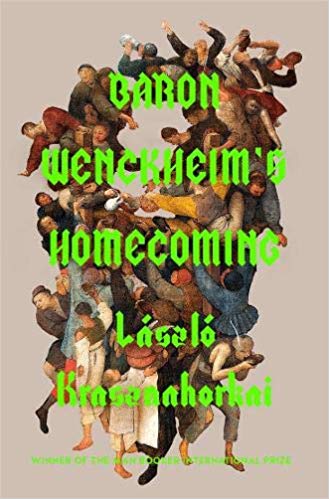
23. Baron Wenckheim's Homecoming, by László Krasznahorkai, translated by Ottilie Mulzet (Nov. 28)
Hungarian author László Krasznahorkai is known for his sentences. Or rather, he is known for how long they are — his 2016 novella, The Last Wolf, is an 80-page single sentence, to give you some idea. A cult favorite due to works like Satantango and The Melancholy of Resistance, Krasznahorkai is rejoined with his English-language translator Ottilie Mulzet for this book about a Habsburg noble slinking back to the small Hungarian town of his youth. It is, in the author's own words, his magnum opus. "I've said a thousand times that I always wanted to write just one book," Krasznahorkai told The Paris Review. "I wasn't satisfied with the first, and that's why I wrote the second. I wasn't satisfied with the second, so I wrote the third, and so on. Now, with Baron, I can close this story. With this novel I can prove that I really wrote just one book in my life."
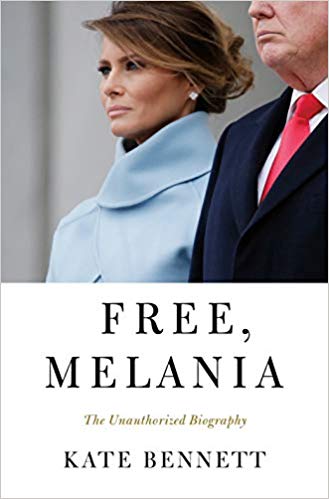
24. Free, Melania: The Unauthorized Biography, by Kate Bennett (Dec. 3)
Complicit villain? Opportunistic gold-digger? Resistance hero? Trophy wife? All of these labels and more have been applied to the first lady of the United States, who will be explored in depth in this unauthorized biography by CNN White House reporter Kate Bennett. An apparent extension of Bennett's documentary about Melania Trump, the book attempts to pin down the intensely private first lady who rarely gives interviews. Bennett has been on the Mrs. Trump beat since 2017, and is the best imaginable writer for this journey into the Melania enigma. "I have learned not to believe in Melania Trump coincidences," Bennett tweeted in 2018. "Generally speaking, her movements and decisions are thoughtful and done with intent." Now at last we'll get to understand more fully what that means.
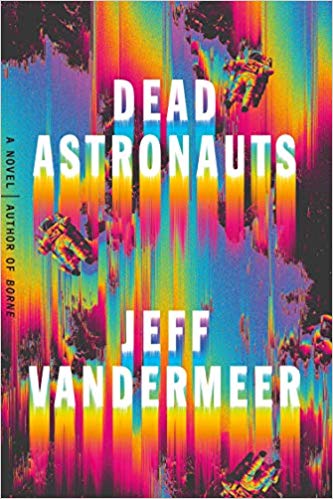
25. Dead Astronauts, by Jeff VanderMeer (Dec. 3)
A strong contender for my favorite book cover of the year, Dead Astronauts is the highly-anticipated new novel from Annihilation author Jeff VanderMeer. Set in the same universe as his 2017 novel Borne, this book seemingly covers some of the same themes as his other works — biotech, environmentalism, and, you know, a casual threat to the "fate of the future, the fate of Earth — all the Earths." While we don't have many details about this book yet, other than that it sets out to explore the three dead astronauts referenced in Borne, an excerpt can be read at Tor here.
For even more great books that you can read right now, check out our annual preview and summer reading list.
Jeva Lange was the executive editor at TheWeek.com. She formerly served as The Week's deputy editor and culture critic. She is also a contributor to Screen Slate, and her writing has appeared in The New York Daily News, The Awl, Vice, and Gothamist, among other publications. Jeva lives in New York City. Follow her on Twitter.
